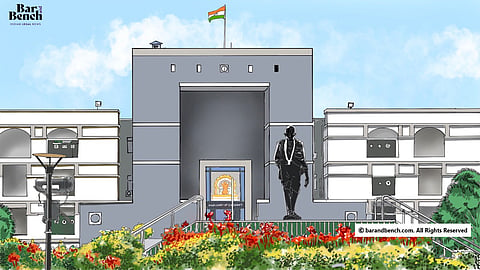
- News
- Columns
- Interviews
- Law Firms
- Apprentice Lawyer
- Legal Jobs
- हिंदी
- ಕನ್ನಡ

The Gujarat High Court on Friday dropped criminal contempt proceedings dating back to 2008 against a lawyer who claimed that the Court was biased towards a certain religion [Suo Moto v GM Das].